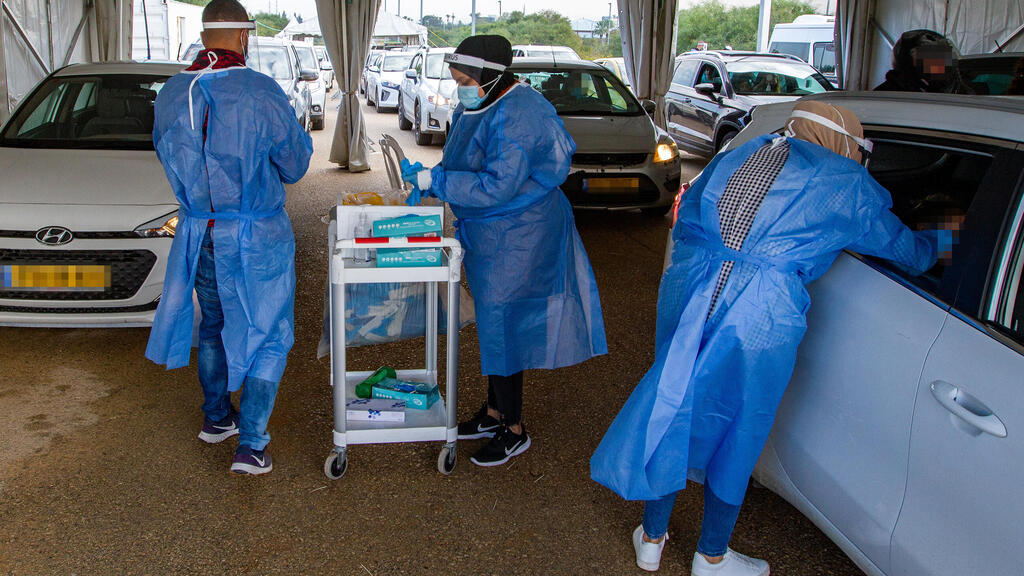Israel on Wednesday announced revisions to its coronavirus testing policy, amid a continued surge in infections due to the spread of the Omicron variant and consequent, overwhelming demand for tests.
Speaking at a press conference, Health Minister Nitzan Horowitz announced that fully vaccinated Israelis under the age of 60 who came into contact with a confirmed carrier can now take a rapid home test and make initial determinations of whether or not they should quarantine for themselves.
"We are adjusting to the new situation. The Omicron wave is different, and is obligating us to change our perception. The guiding principle here is protecting high-risk groups," he said.
Horowitz added that the ministry will reserve PCR tests for people aged 60 and older, as well as groups at higher risk of developing a serious illness from coronavirus.
"This is a significant change intended to identify risk populations sooner, intervene and prevent severe disease. We are now looking even less at infection (rates)," ministry director-general, Nachman Ash, said at the news conference.
According to the new guidelines, vaccinated Israelis who are over the age of 60 or who are part of a high-risk group will take a PCR test upon suspected exposure to a confirmed carrier.
3 View gallery


Health Minister Nitzan Horowitz during Wednesday's press conference
(Photo: Motti Kimchi)
If their results return negative, they are exempt from quarantine. If the test is positive, they will need to enter isolation for 10 days, which they may leave only after receiving a waiver from their personal physician saying they have recovered, with no need for a second test.
For the rest of the vaccinated population, they will be exempt from quarantine if their rapid antigen test returns negative.
If the test is positive, however, they will need to take a second antigen test at a local clinic or authorized Health Ministry facility. If the second test returns positive, they will need to enter isolation for 10 days, which they may leave only after receiving a waiver from their personal physician saying they have recovered, with no need for a third test.
For unvaccinated Israelis over the age of 60 or who are part of a high-risk group, they will need to enter a seven-day quarantine even if their results return negative. They will be able to leave quarantine only after if a second PCR test conducted on the seventh day returns negative.
If the initial test returned positive, they will need to enter a 10-day quarantine, which they may leave only after receiving a waiver from their personal physician saying they have recovered.
For the rest of the unvaccinated, they will need to enter a seven-day quarantine if their antigen test, which they can take only at a clinic or an authorized Health Ministry facility, returns negative, which they can leave after a second antigen test returns negative on the last day of their isolation.
If the initial antigen test returned positive, they will need to enter a 10-day quarantine, which they may leave only after receiving a waiver from their personal physician saying they have recovered.
The new policy will come into effect on Friday, Jan. 7, the ministry said.
Reuters contributed to this report



